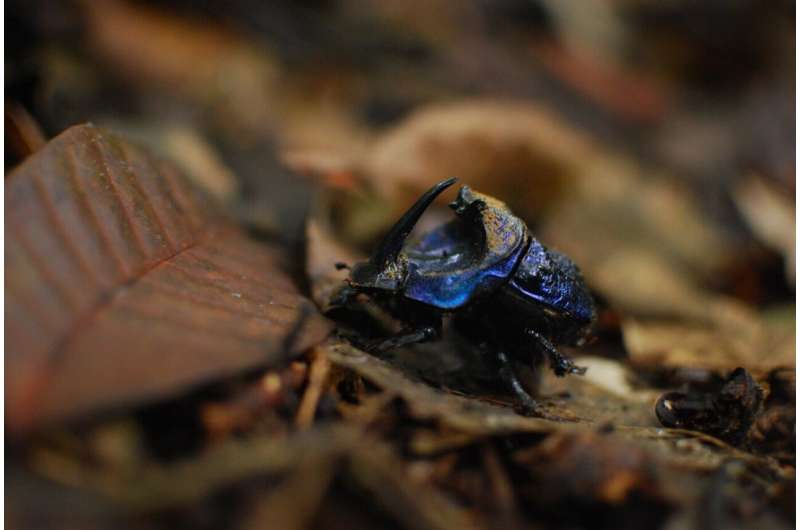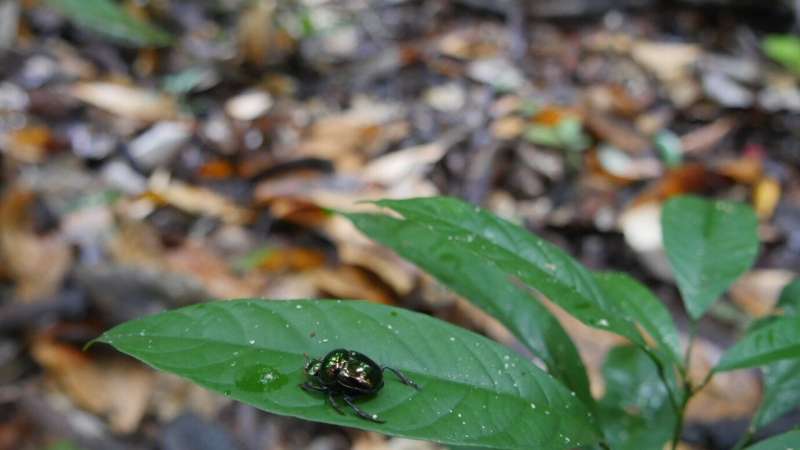
According to an international study, initiatives using non-native tree species can affect tropical insects.
Scientists at the University of Bristol and Federal University of Western Par in Brazil have found that plantation edge effects on dung beetles can be up to 800 meters deep.
As the world tries to mitigate climate change, planted forests have become a widespread restoration strategy. Exotic tree plantations can have a bigger influence on the native flora of hyperdiverse tropical forests according to the findings published today.
Edge effect research looks at how communities change at the boundary of multiple habitats.
The team of scientists traveled to the Amazon Rainforest and collected over 3,700 dung beetles from 49 species to see how the edge effect affects insect diversity.
The findings for dung beetles offer new insights into the importance of considering how proximity to exotic tree plantations can affect tropical forest biodiversity.

Edge effects varied across dung beetle responses and were species specific. We found more dung beetle species far away from the plantations, but some of them thrived and were closer to the plantations.
Some dung beetles may be more sensitive to changes in the forest environment than others.
Professor Fadini from the Federal University of Western Par said that understanding multi-species responses to anthropogenic disturbances is crucial to tackle the current biodiversity crisis.
"Edge effects from exotic tree plantations and environmental context drive dung beetle assemblages within undisturbed forests."
More information: Edge effects from exotic tree plantations and environmental context drive dung beetle assemblages within Amazonian undisturbed forests, Forest Ecology and Management (2022). Journal information: Forest Ecology and Management